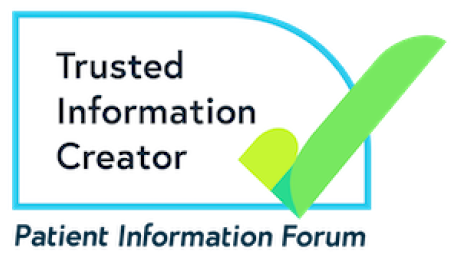Type 3C diabetes
Type 3C diabetes (secondary diabetes)
On this page, we explain what Type 3c Diabetes is, how it is diagnosed, its symptoms and treatment and management.
One of the functions of the pancreas is to produce hormones to keep blood glucose levels within a normal range (between 3.5-7 mmols/l). Insulin is one of these hormones, and it is needed to allow the glucose (or sugar) in our blood from the food we eat to enter our cells and fuel our bodies, providing us with energy.
Approximately 9% of all diabetes cases are Type 3c, but the condition is underdiagnosed. There is a lack of awareness amongst the general public and some health care professionals.
Frequently asked questions about Type 3c diabetes
-
Advice for patients with Type 3c Diabetes
- Eat meals little and often in a regular pattern (at similar times every day) and include starchy carbohydrates such as potatoes, bread, rice or pasta.
- Try not to skip meals.
- You may be advised to test blood glucose levels.
- Your healthcare team will show you how to do this and inform you when to test.
- Consider a diary to record insulin, pancreatic enzymes, exercise and food intake.
- Ask for a dietitian referral.
-
Diagnosing Type 3c Diabetes
Diagnosis and management of Type 3c Diabetes can be challenging, partly due to a lack of awareness. But remember, it is known that Type 3c is linked to problems with the pancreas. So, you can ask your doctor to check for type 3c if you’ve had pancreatic issues and you can explain your reasons why.
Researchers have identified criteria for diagnosing Type 3c Diabetes, including the poor function of the pancreas, damage that is visible on imaging scans (such as CT) or removal of the pancreas. Diagnosis also requires the ruling out of other types of diabetes, so doctors may look for autoimmune markers for Type 1 Diabetes using a blood test. Giving doctors a thorough medical history may help them to diagnose the condition.
-
Symptoms of Type 3c Diabetes
If you have Type 3c Diabetes, then your pancreas may not be able to give you what you need to digest your food. This is called pancreatic exocrine insufficiency (PEI) and means that your pancreas isn’t working correctly.
The signs to look out for can include:
- Losing weight without trying to
- Stomach pain
- Feeling more tired than usual
- Frequently passing wind
- Diarrhoea or fatty or oily stools
There are also common signs and symptoms of diabetes to look out for as well:
- Feeling thirsty
- Going to the toilet more often (urine)
- Genital thrush or itching
- Blurred vision
-
Symptoms to be concerned about
People with Type 3c Diabetes may experience high or low blood glucose levels.
Low blood glucose is known as a “hypo”.
A hypo is when the blood glucose level drops below 4mmol/l, this can happen if you take insulin or certain tablets for diabetes. It is essential to avoid hypos as damage to the pancreas can reduce the typical response to low blood glucose levels. If one does occur, treatment must be given immediately.
Common Symptoms of hypoglycaemia include;
- Trembling and feeling shaky
- Sweating
- Being anxious or irritable
- Becoming pale
- Palpitations and a fast pulse
- Lips feeling tingly,
- Blurred sight
- Being hungry
- Feeling tearful
- Sudden tiredness
- Having a headache
- Lack of concentration
A hypo requires immediate treatment with one of the following 15-20g fast-acting carbohydrates:
- 5-6 dextrose tablets
- 150ml sugary drink (non-diet) drink
- 200ml pure fruit juice
- Five jelly babies
- 60ml GlucoJuice
To stop your sugar levels from going down again, eating a snack or meal containing slower-acting carbohydrates is essential.
This could be a:
- A sandwich
- A piece of fruit
- A bowl of cereal
- A glass of milk
- Or it could be your next meal if it’s due
Hypos that are not resolving after treatment require urgent medical attention
If you test your blood glucose levels, you should test your blood glucose more frequently after a hypo. Let your health professional team know that it has occurred as you may need a treatment change.
-
Treating conditions that cause Type 3c Diabetes
Many conditions affecting the pancreas can result in digestion issues and put people at risk of malnutrition and raised blood glucose levels after eating (meal-induced hyperglycaemia). If the pancreas is damaged or not functioning correctly, pancreatic enzyme replacement therapy (PERT) may be required to aid digestion. Good nutrition is needed to help gain or maintain weight and to help keep blood sugars stable.
People with pancreatic cancer can find it challenging to eat, digest their food and maintain their weight. This may make managing blood sugars more difficult. The goal of treating type 3c diabetes in someone with pancreatic cancer is to prevent very high and very low blood glucose levels, stop further weight loss and avoid longer-term complications of diabetes.
-
Treatment and management
Management of Type 3c Diabetes partly depends on the level of damage to the pancreas and the cause of the damage. Type 3c Diabetes can be managed with insulin injections or sometimes oral medications/tablets. If you require insulin injections, your diabetes team will go through all the relevant information with you, and you will receive regular check-ups.
It is also likely that your healthcare team will also discuss any dietary or lifestyle changes you might need to make; this may include treatment to help with digesting food.
Diabetes can be complicated and can cause different problems in the short term and the longer term, but these are not inevitable. Diabetes-related complications can include nerve, eye, foot and kidney damage. However, keeping blood glucose levels, blood pressure, and blood fat (lipids) levels under control will help to reduce the risk of developing complications. It is vital to attend your diabetes health checks and that you know how to look after yourself between appointments.
Management of Type 3c Diabetes also requires effectively treating the underlying pancreatic disease. In general, giving up smoking is essential to prevent further damage to the pancreas. Cutting out alcohol also helps maintain the health of the remaining pancreas and prevents alcohol-induced hypoglycaemia (low blood sugar).
-
What is type 3c diabetes?
Type 3c Diabetes (or Pancreatogenic Diabetes) can develop when the pancreas stops producing enough of the hormone called insulin. This can happen due to an illness or condition that affects or damages the pancreas. It can also occur if you have had surgery on your pancreas or if it is removed. When there isn’t enough insulin in the body, the blood glucose levels begin to rise above the average level, and if left untreated, this can lead to complications.
Approximately 9% of all diabetes cases are Type 3c, but the condition is underdiagnosed. There is a lack of awareness amongst the general public and some health care professionals.
The leading causes of Type 3c Diabetes are shown below. It is important to remember that not everyone with chronic pancreatitis or the other conditions here will develop Type 3c Diabetes. The severity of the condition will depend on the damage caused to the pancreas, the amount of the pancreas removed during surgery and the health of any remaining organ.
Frequently asked questions about diabetes
-
- Urinating more often than usual, particularly at night- Feeling very thirsty
- Feeling very tired/fatigue
- Unexplained weight loss
- Itching around the penis or vagina
- Slow wound healing
- Blurred vision
- Increased hunger
-
Gestational diabetes occurs within pregnancy when the body cannot meet the insulin needs of both the baby and the mother and disappears following the birth of the baby.
Not all expectant mothers will experience this, but it affects 4-5 out of 100 women during pregnancy.
-
Type 1 is usually diagnosed in children and young adults, but it can develop at any age.
Although certain genes can play a role in type 1 diabetes, they are not the only factors involved. It is an autoimmune condition, where the body’s immune system mistakenly attacks insulin-producing cells, meaning that not enough insulin is produced.
Those with type 1 diabetes are insulin-dependent.
-
Type 2 is the most common type of diabetes.
It may develop slowly, usually over the age of 40. The pancreas no longer produces enough insulin or has become resilient to insulin.
This type of diabetes is caused by behaviour and lifestyle choices e.g. lack of exercise, unhealthy diet.
-
Type 3c diabetes, which often arises after part or all of the pancreas is removed due to conditions like pancreatic cancer, cystic fibrosis, or pancreatitis, remains relatively unknown despite making up about 8% of all diabetes cases.
Many patients with type 3c diabetes also experience pancreatic exocrine insufficiency, requiring enzyme therapy to aid digestion. Managing this type of diabetes can be difficult due to limited information on whether to follow type 1 or type 2 guidelines, leaving many patients, like Pancreatic Cancer Action founder Ali Stunt, reliant on trial and error in treatment.
Ali, a pancreatic cancer survivor, initially believed she had type 2 diabetes until learning she actually had type 3c. Since then, she has faced challenges managing her blood glucose levels despite a strict diet and insulin therapy. Her experience highlights the lack of awareness and support available for those with type 3c diabetes, despite its clear link to pancreatic conditions.
The link between diabetes and pancreatic cancer
Read about the research we funded on the link between diabetes and pancreatic cancer and identifying biomarkers.
Read more
The information provided in this site, or through links to other websites, is not a substitute for medical or professional care and should not be relied upon as such. Read our disclaimer.
Sources and references for this information product will be supplied on request. Please contact us quoting the Information Product number below:

- Information Product No: TBC
- Published: 3 Oct 2019
- Last updated: 7 Aug 2024
- Next Review Due: 26 Jul 2027